Mechanism of Disease
In PK deficiency, mutations in the PKLR gene lead to diminished enzymatic activity and to reduced red blood cell (RBC) lifespan1,2
In glycolysis, glucose is broken down into pyruvate and ATP3
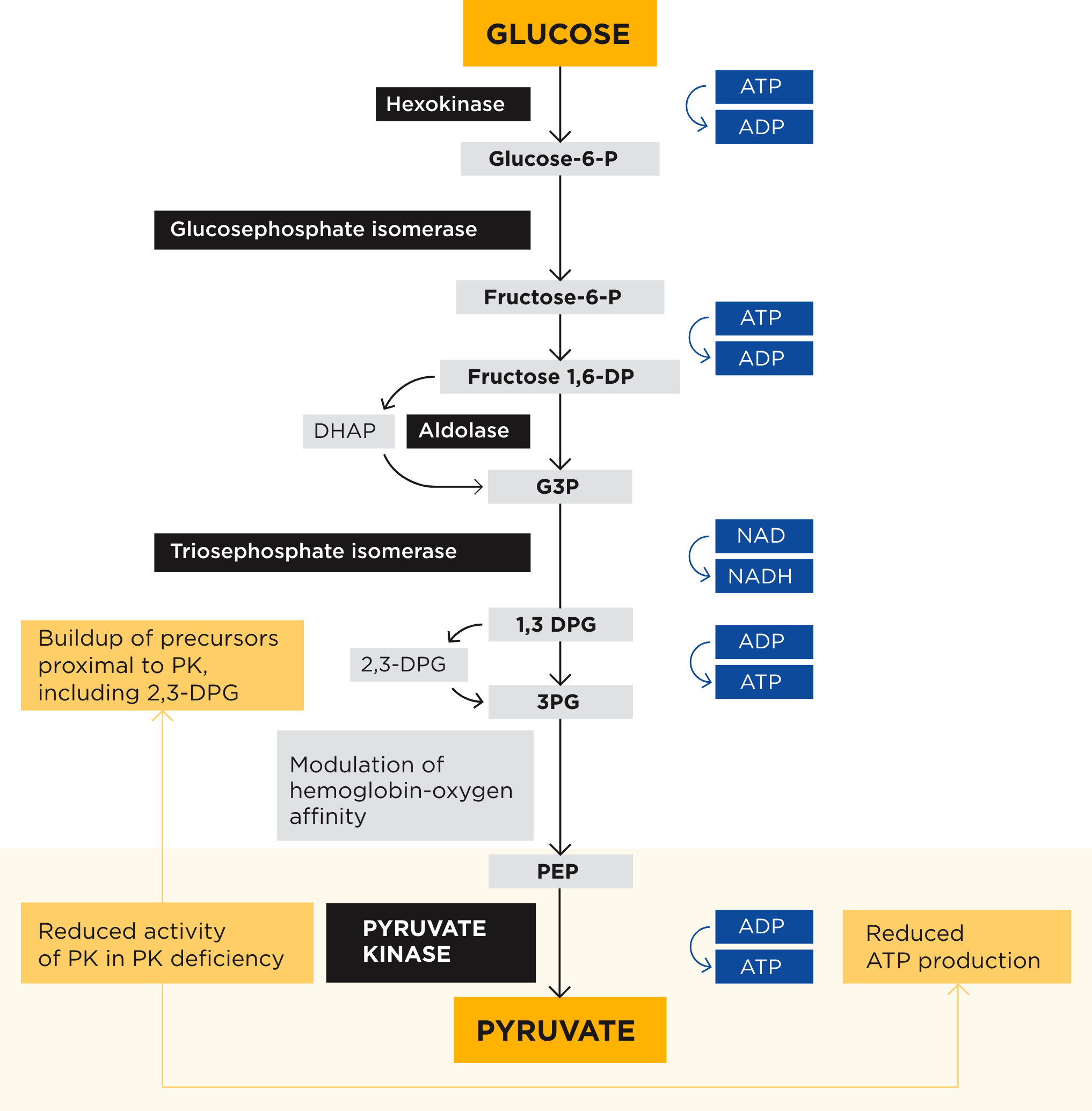
1,3 DPG=1,3 diphosphoglycerate; 2,3-DPG=2,3-diphosphoglycerate; 3-PG=3-phosphoglycerate; ADP=adenosine diphosphate; ATP=adenosine triphosphate; DHAP=dihydroxyacetone phosphate; fructose 1,6-DP=fructose 1,6-diphosphate; fructose-6-P=fructose-6-phosphate; G3P=glyceraldehyde-3-phosphate; glucose-6-P=glucose-6-phosphate; NAD=nicotinamide adenine dinucleotide; NADH=nicotine adenine dinucleotide; PEP=phosphoenolpyruvate.
ATP is the primary source of cellular energy in mature RBCs1
- Lacking mitochondria, RBCs are dependent on glycolysis to produce ATP, which provides 90% of the energy they require1
- Pyruvate kinase R (PKR) catalyzes the final, rate-limiting step of glycolysis, accounting for 50% of the ATP generated1,4
- ATP is critical to maintaining cell structure and function5
- While abnormalities in virtually every glycolytic enzyme have been described, more than 90% of glycolytic enzymopathies associated with hemolysis are due to PK deficiency1
Mutations in PKR result in inefficient glycolysis1,2,8
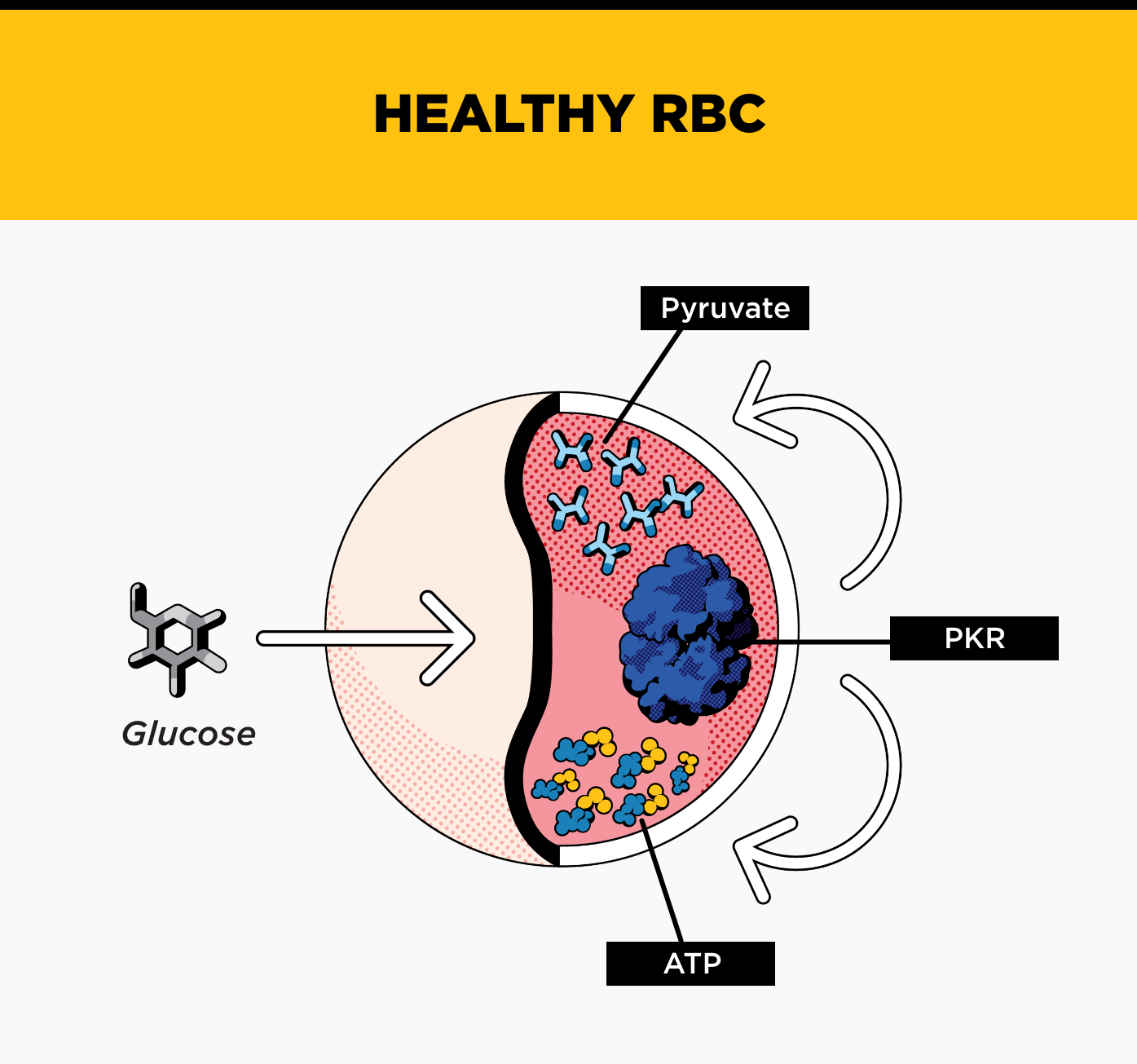
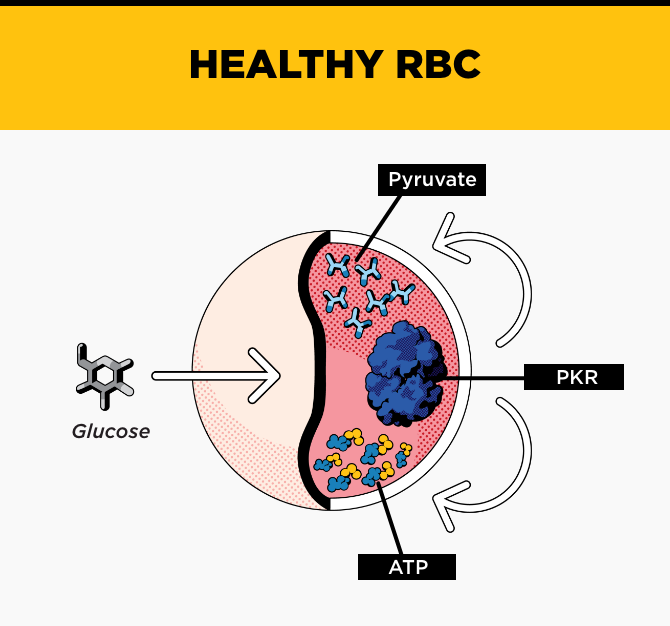
In the healthy RBC,
- RBCs are dependent on glycolysis for ATP
- PKR converts PEP to pyruvate, generating ATP as the final rate-limiting step in glycolysis
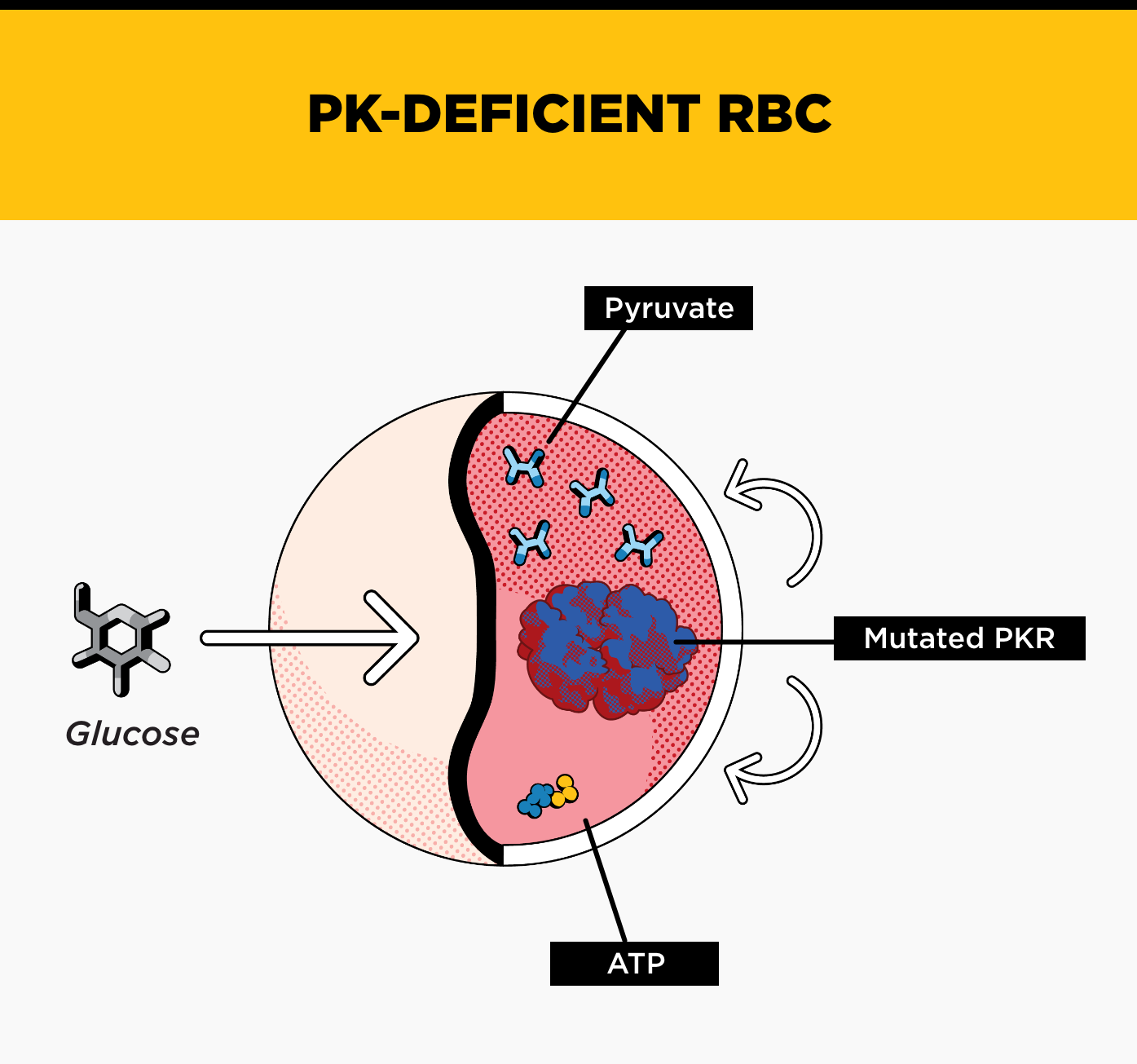
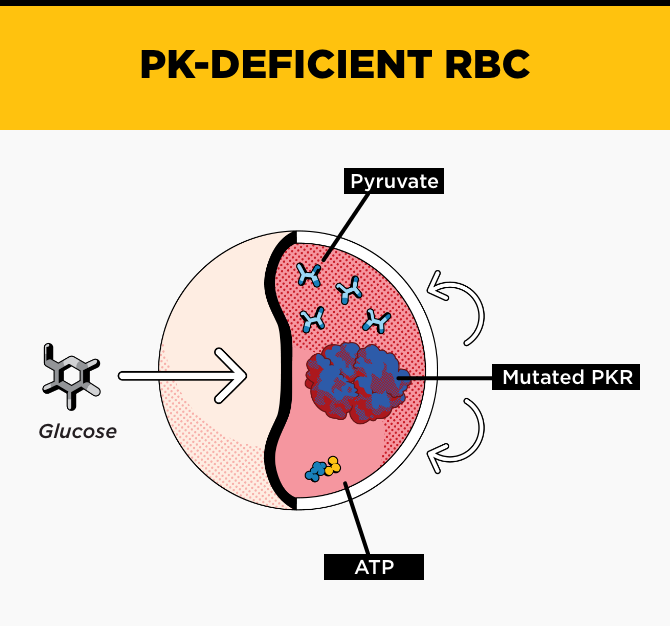
In a PK-deficient RBC,
- A genetic defect in PKR results in inefficient glycolysis
- The reaction catalyzed by mutated PKR produces insufficient ATP
- RBC lifespan is reduced from about 120 days to a few days or weeks
The mechanism for hemolysis in PK deficiency is multifactorial due to9,10:
- Loss of RBC membrane integrity and deformability
- Splenic destruction
- Abnormal erythropoiesis
- Disruption of iron homeostasis

Listen to Dr Kevin Kuo
Join us in a conversation with Dr Kevin Kuo about the current state of PK deficiency disease management.
References: 1. Glader B, Grace RF. Hereditary hemolytic anemias due to RBC enzyme disorders. In: Greer JP, Rodgers GM, Glader B, et al, eds. Wintrobe’s Clinical Hematology. 14th ed. Philadelphia, PA: Wolters Kluwer; 2019:742-761. 2. Grace RF, Bianchi P, van Beers EJ, et al. Clinical spectrum of pyruvate kinase deficiency: data from the Pyruvate Kinase Deficiency Natural History Study. Blood. 2018;131(20):2183-2192. 3. Al-Samkari H, van Beers EJ, Kuo KHM, et al. The variable manifestations of disease in pyruvate kinase deficiency and their management. Haematologica. 2020;105(9):2229-2239. 4. Grace RF, Zanella A, Neufeld EJ, et al. Erythrocyte pyruvate kinase deficiency: 2015 status report. Am J Hematol. 2015;90(9):825-830. 5. Zanella A, Fermo E, Bianchi P, Valentini G. Red cell pyruvate kinase deficiency: molecular and clinical aspects. Br J Haematol. 2005;130(1):11-25. 6. Grace RF, Layton DM, Barcellini W. How we manage patients with pyruvate kinase deficiency. Br J Haematol. 2019;184(5):721-734. 7. de Medicis E, Ross P, Friedman R, et al. Hereditary nonspherocytic hemolytic anemia due to pyruvate kinase deficiency: a prevalence study in Quebec (Canada). Hum Hered. 1992;42(3):179-183. 8. National Organization for Rare Disorders. Voice of the Patient Report: Pyruvate Kinase Deficiency. Washington, DC: National Organization for Rare Disorders; 2020. 9. Mohandas N. Function and dysfunction. Blood. 2018;131(20):2179-2180. 10. Rider NL, Strauss KA, Brown K, et al. Erythrocyte pyruvate kinase deficiency in an old-order Amish cohort: longitudinal risk and disease management. Am J Hematol. 2011;86(10):827-834.